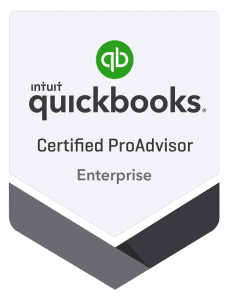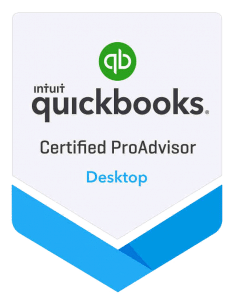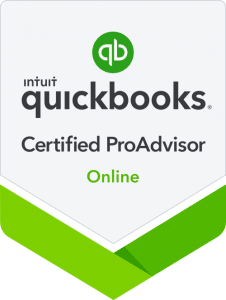Sales tax reporting can feel like one of those back-office tasks that’s easy to delay but ends up biting you later. Whether you’re selling products in one state or shipping across a few, keeping up with this part of your business records is more of a need than a choice. Missing deadlines, filing with the wrong data, or not understanding your local sales tax rules could cause problems you don’t want to deal with.
Getting a handle on the basics can help make this process less frustrating and more routine. Knowing what to include, how to prepare, and what habits to avoid gives you a stronger financial setup. You don’t need to be a tax expert to stay compliant. You just need a little guidance and the right tools.
What Are Sales Tax Reports?
Sales tax reports are records that show how much tax you’ve collected from customers during a specific period. These reports are typically filed monthly, quarterly, or annually, depending on your state’s rules. They break down taxable and exempt sales, total collected tax, and how much is owed to tax authorities.
Businesses use these reports to submit the correct amount of tax to the state or city. Some states require a detailed breakdown by local jurisdiction, which adds more complexity. That’s why understanding what’s taxable matters. For instance, snack foods might be taxed in one state but not another.
A typical sales tax report includes:
– Total gross sales
– Exempt sales
– Taxable sales
– Total collected tax
– Reporting period
– Jurisdictions of sales
Understanding each section helps business owners communicate clearly with their bookkeepers or tax professionals. It also reduces confusion during audits or follow-ups with tax authorities.
How to Prepare Accurate Sales Tax Reports
Preparing accurate sales tax reports starts with having clean, organized records. Keeping track of your sales and understanding where your customers are located is key. A mistake here can lead to penalties or incorrect tax filings.
Here’s what helps:
1. Track every sale tied to tax status
2. Break down sales by location
3. Double-check tax rates in your systems
4. Use accounting software to generate reports
5. Set reminders to review reports before filing
Small errors—like counting exempt sales as taxable or using outdated rates—can cost you. For example, a business selling wholesale and retail might incorrectly include wholesale amounts when those are tax-exempt. That kind of mistake can make your tax bill much higher than expected.
Doing regular monthly check-ins on your records can save time and stress, especially if you’re filing quarterly. Once it becomes part of your routine, these reports are easier to manage.
Benefits of Accurate Sales Tax Reporting for Your Business
Accurate sales tax reporting helps avoid surprises. When your records are solid, cash flow stays steady and you’re less likely to face unexpected bills or penalties. That kind of stability matters more than most realize.
It also helps during audits. Being able to show organized, correct records shows you’re running a business that takes compliance seriously. That can go a long way.
These reports also help support smarter decisions. Say you’re thinking about opening a new location. Understanding the tax differences in that area gives you a clearer view of the added costs. The same goes for launching products in new states.
Businesses with consistent and tidy reporting practices usually have a better grip on all parts of their operation. When tax reporting is under control, it’s easier to shift focus to improving profits or scaling up.
How Cloud Bookkeeping Can Help
All of this can feel heavy—especially if you’re running a business solo or with a small team. That’s where our team at Cloud Bookkeeping can make a difference.
We take over the sales tax reporting process from start to finish. That means keeping your records updated, categorizing transactions properly, and preparing reports that meet your state and local requirements. We handle both the details and the big picture.
We also stay on top of changing tax regulations so you don’t have to. Whether it’s adding new locations or changing product offerings, our team adjusts your tracking and reporting as needed. With us handling the legwork, you’re free to focus on running your business.
Stay Ahead with Expert Support
Handling sales tax doesn’t need to get in the way of your business goals. With the right support and systems in place, what was once stressful becomes just another repeatable task.
Understanding how these reports work and why they matter sets you up for smoother operations and fewer surprises. Add expert help into the mix, and it becomes even easier to maintain compliance, manage growth, and make confident decisions.
If keeping up with sales tax reporting is slowing you down, just know there’s a more efficient way forward.
FAQs
1. What are sales tax reports and why are they important?
Sales tax reports show how much tax your business has collected and how much you need to send to the government. They help you stay compliant and avoid penalties.
2. How do I ensure my sales tax reports are accurate?
Make sure you track all sales properly, use current tax rates, break down sales by location, and review your reports before submitting them.
3. What information is typically included in a sales tax report?
Your report will usually list gross sales, exempt sales, taxable sales, total collected tax, the reporting period, and where the sales occurred.
4. Can using software help with preparing sales tax reports?
Yes, reliable accounting software can track sales, apply the right tax rates, and generate clean reports for your review and filing.
5. How can Cloud Bookkeeping assist with sales tax reporting?
We handle tracking, filing, and maintaining compliance for your sales tax. With our support, you can focus on growing your business.
Fine-tuning your understanding of sales tax reports not only supports smooth business operations but also positions your enterprise for strategic growth. If managing these intricate details seems overwhelming, harness the expertise of Cloud Bookkeeping to streamline your processes. Discover how our services for sales tax reports can help you maintain accurate reports and ensure compliance without the stress, leaving you free to focus on growing your business.






